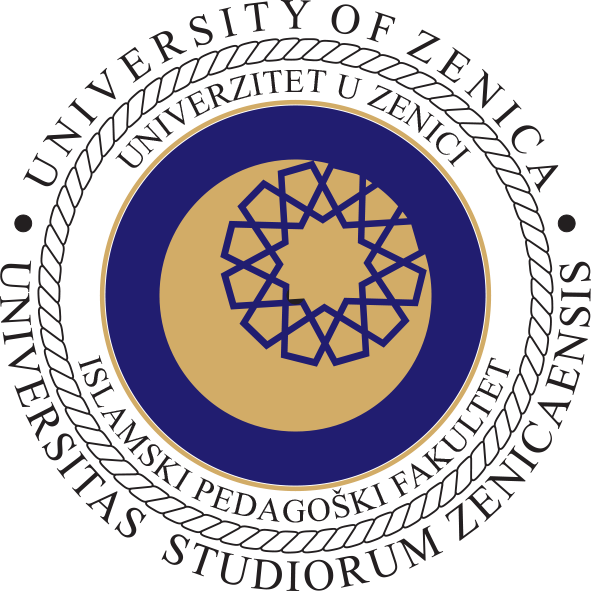ISLAMIC TRADITION OF BOSNIAKS AS AN EXAMPLE OF INTERRELIGIOUS TOLERANCE AND COEXISTENCE
Ever since the advent of Islam in these areas Bosniak Muslims have been members of the main stream of Islam (ar. Ehlu-s-sunne ve-l-jama, bos. Ehli-sunna) and when it comes to religious partial fiikh (ritual) matters they have followed one of the oldest mezhep (law schools) that originated in Islam, the hanefi mezhep. Thus, for almost six centuries,...
By Safvet Halilović
A REVIEW OF THE BOOK “THE METHODOLOGY OF INTERPRETING THE QUR’AN IN HANAFI MEZHEB” BY DR. SAFVET HALILOVIĆ
Book review...
By Adil Makić
RASPRAVA S HARIDŽIJAMA I ŠIIJAMA U HANEFIJSKOM TEFSIRU AHKĀM AL-QUR’ĀN OD AL-DŽASSASA
Abu Bakr al-Razi al-Jassas holds a prominent position among the Islamic scholars in general and the scholars of the Hanafi school of Islamic law in particular. He wrote many works and is especially known by his tafsir Ahkām alQur’ān (Rules from the Qur’ān), an interpretation of the Noble Qur’ān with a particular emphasis on the verses related to ru...
By Safvet Halilović
SHEIKH YUSUF AL-QARADAWI AND THE DIRECTION OF WASATIYYA – ISLAMIC BALANCE AND MODERATION
Sheikh Yusuf Al-Qaradawi is a prominent contemporary Islamic scholar, lawyer, writer and erudite. He is the author of over two hundred books and studies on Islam, Islamic law (fiqh and fatwa), culture, civilization, ethics and education. He is the president of the International Union of Muslim Scholars, the European Council for Fatwa and Research, ...
By Safvet Halilović
AL-JASSAS AND SECTARIAN INTERPRETATIONS OF THE QUR’AN
Imam Abu Bakr ar Razi al-Jassas is one of the prominent Islamic scholars. He is the author of numerous works, most famous of which is his tafsir Ahkam al-Qur'an (the Qur'an Regulations), in which he commented the Holy Qur'an with special reference to the revelations concerning regulations (Ayat al-Ahkam), according to the methodology of the Hanafi ...
By Safvet Halilović
THE IMPORTANCE OF CLASSICAL ARABIC POETRY IN TAFSEER
Islamic scholars agree that without knowing the Arabic language and its disciplines it is impossible to completely understand the Qur’an. In that sense they emphasise that valid are those meanings of the Arabic language from the time of the revelation of the Qur’an, since the Arabic language, as every other language, is capable of changes that are ...
By Safvet Halilović
THE PROBLEM OF ADDICTION FROM THE PERSPECTIVE OF QUR`ANIC ANTROPOLOGY
According to the teaching of the Qur`an, Islam is, primarily, obedience to Allah and voluntary subordination to His will and regulations. The Qur`an points out that all the unpleasant things which man experiences in his life are results of his misdoings, which are as such, inconsistent with Allah's order and the laws prescribed by Him. Islamic inj...
By Safvet Halilović
SHAIH SE'ID HAVVA, RELIGIOUS TEACHER AND MUFESSIR
Shaih Se’id Havva is an outstanding personality among contemporary Islamic scholars. With his total commitment, and especially his written works, he gave crucial contribution to the affirmation of contemporary Islam and Islamic thought. Living in the 20th century, the time of great turmoil, he truly identified himself with the problems that contemp...
By Safvet Halilović
THE BASICS OF KUR'ANIC ANTHROPOLOGY
The Noble Qur’an, as the primary source of Islam, speaks about a man (Arab, insan) in its numerous ayats. In fact, a man is the focal point of the Qur’an for everything that’s revealed in the Qur’an is revealed to a man and is about a man. A man, no matter what way we observe him, is the most complex category of existence in this phenomenal world. ...
By Safvet Halilović
PROPHET’S WIVES (UMMEHATU-L-MU’MININ)
The wives of Allah’s Messenger s.a.w.s. have a special place and treatment in Islamic tradition. According to the Qur’an they are Umehatu-l-mu’minin (Mothers of the believers): ¨The Prophet is closer to the believers than their ownselves, and his wives are their mothers.¨ (El-Ahzab). The Prophet’s wives had a specific treatment after his death too:...
By Safvet Halilović
